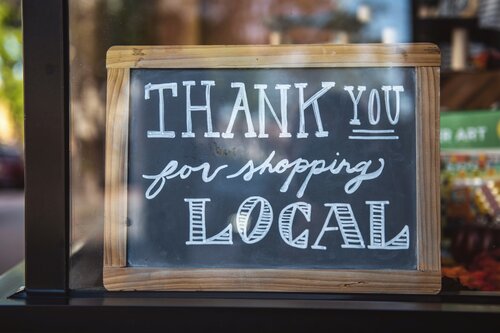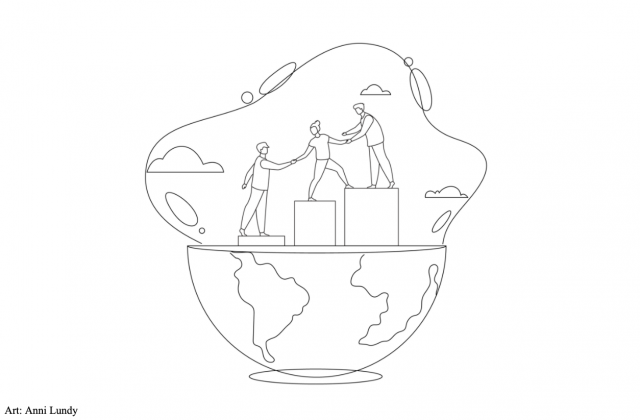
ELLA HENDRIX MAY 19, 2020
There’s no doubt about it – what has been experienced as a terrible crisis for humankind is proving to be a real boon for the environment. As the world stays indoors, international travels grinds to a halt and road traffic is at record lows, the planet seems almost to be heaving a sigh of relief. It’s certainly an encouraging phenomenon, and one that more and more people are turning attention to even amidst our more human struggles with the virus. How can we seize this moment of relative calm and maintain some of the unexpected eco-impact that the pandemic has brought? Here are 4 coronavirus-inspired lessons in sustainability.
1) Limit plane travel and international holidays
Greenhouse gases airborne pollution have dropped across the world, with satellite images showing sobering pictures of just how much damage human activity was really causing. A common refrain heard internationally is the question, “Is this necessary?” The life-or-death situation set up by the virus has perhaps put our usual travel and tourism behavior under the microscope – do we need to travel far to enjoy nature, culture, or new experiences? And with a definite economic recession on the cards, many of us will simply not be able to afford international excursions after lockdown.
Reduced travel and industrial activity will lead to fewer emissions, but we need to be vigilant now that levels don’t sharply rise again once the crisis passes (as it did with the 2008 global financial crisis, which saw emissions drop briefly followed by a subsequent boom once the economy recovered). While nobody can predict the future, it seems likely that the future of travel and hospitality will need to reinvent itself locally in the months to come. Seeing evidence of the enormous environmental cost of air travel, there’s more reason than ever before to opt for group holidays, coach travel, “staycations,” public transport, and attractions closer to home. On a related note, conferencing software and chat platforms will likely retain their popularity simply because people are becoming used to their convenience under lockdown.
2) Shift to shopping locally

With employees having to work from home and entire industries shutting their doors, supply chains have been heavily disrupted, and consumers have found that the ordinary wealth of products they’re used to is simply not available anymore. However, people are learning to make do, use what they already have, source items locally, or simply reconsider whether they always need imported goods or dozens of options for every potential purchase. This could have an inspiring and lasting effect on the economy – with people realizing that local shopping, buying second hand, or simply reigning in a bad shopping habit is an achievable goal.
3) Produce less waste

As many families around the UK have drastically reduced their shopping trips over the last month or two, and recycling services have slowed or halted in some areas, recyclable material markets have been affected, resulting in package shortages in some places. Now is the perfect time to ask: can we do better when it comes to reducing packaging or using easily recycled or biodegradable packaging? With record unemployment and financial insecurity, most of us could reconsider certain purchases (like landfill-destined takeaway coffee cups), cutting back on “throwaway” items, or even reusing and recycling things in our own homes.
4) Rethink what’s truly important
The death toll in the UK has risen well beyond what many could have imagined when they first heard of the novel coronavirus at the end of 2019. While the loss of life is tragic, there is another, more hopeful message being spread as people do what they can to adapt to life under lockdown. This message is about using the crisis as a moment of opportunity, and a chance to rethink, question old ways and commit to something better for us, for others and the planet. China has already taken steps to ban the wildlife trade. In the months ahead, there’s reason to believe that people might be tempted to prioritize health and education sectors, and question our materialism, our dysfunctional politics, and our fevered pursuit of endless growth at literally any cost.
The world that environmentalists have been begging us all to create seems within grasp, for a brief moment. Though recent events have been devastating, many are wondering if the virus has given us the push we needed towards a more sustainable future that respects human life and the environment we depend on, beyond exploitative work practices, and non-renewable energy sources. In the wake of the virus we can now get a glimpse of what the world could look like with a little more conscious dedication to what truly matters to us all. It’s up to us now to grab what progress we’ve made and run with it.




